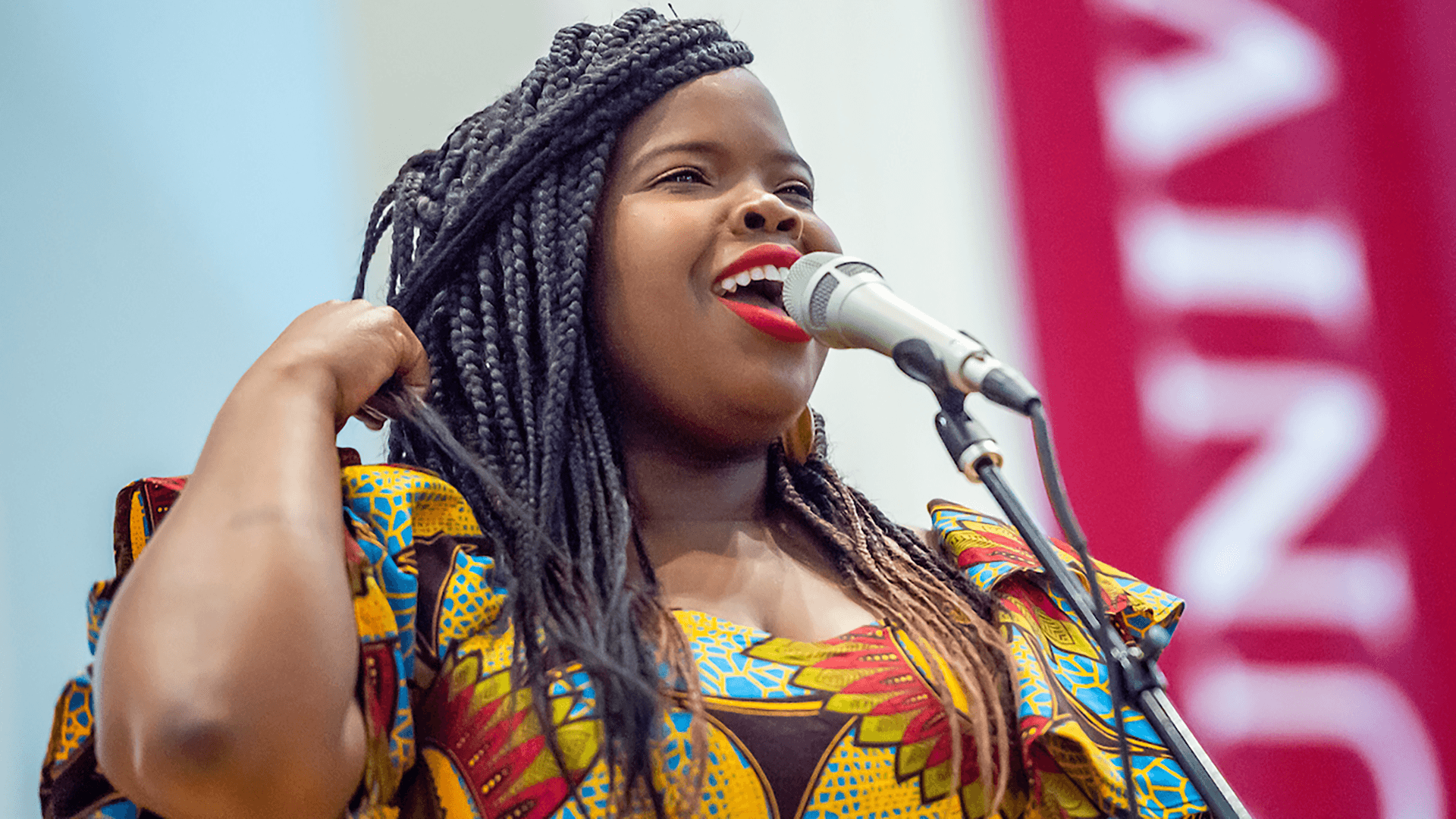There is a little seeker, believer, and doubter in each of us. But one performance, filling Memorial Chapel with energetic beats and a fearless cry for justice, made believers in the profound power of music out of everyone in attendance.
R&B artists Danielle Ponder and The Tomorrow People marked the inaugural Coleman B. Brown Commons “Seekers, Believers, Doubters,” series on Friday, Feb. 22.
Brown was a philosophy and religion professor and the University chaplain, who took part in the Chicago Freedom Movement, vocally opposed the Vietnam War, and centered his teaching around ethics. “Seekers, Believers, Doubters” tackles some of the most pressing social justice issues of our time as a way of honoring his legacy.
“One of the main goals of the living-learning communities we are establishing at Colgate is to bring people together, to challenge them intellectually, and to get them to experience life through the eyes of others,” said Jeff Bary, Brown Commons faculty director and associate professor of physics and astronomy.
As an activist and public defender, Ponder mingles her R&B songs with messages of social reform. Her multimedia performance covered three forms of love: romance, justice (love for others), and liberation (love for oneself).
In the romantic portion of her performance, Ponder discussed times in her life when she sacrificed her sense of self to maintain a relationship. To highlight justice, she rolled video of a black man who was stopped by the police while riding his bike, supposedly for not having a bell. Tackling the necessity of self-love or liberation, Ponder sang for “The ladies in the room,” while women danced enthusiastically on the screen behind her. With “Something Funky,” she celebrated the LGBTQ community.
“[Ponder’s] message — one of personal liberation, racial and gender equality, and criminal justice reform — reflects issues and values our namesake fought for valiantly,” Bary said.
Before one of her songs, Ponder shared the Cornel West quote, “Justice is what love looks like in public.” Bary found this moment pivotal to the strength of the performance.
“Given the nature of our broken politics and the incivility of public discourse,” Bary said, “being reminded that what is right and just starts with a fundamental love of all people is valuable.”
Ponder became a public defender in hopes of reforming a criminal justice system that gave her brother a mandatory 20-year prison sentence for a robbery of $170. But she left the courtroom and took to the stage because she felt it was more important to share the stories of marginalized communities with a wider audience.
“I don’t do these types of songs with these lyrics to be divisive,” Ponder said. “It’s because racism is a painful experience, and my one antidote to pain is my art.”
While the content was heavy at times, Ponder’s infectious energy kept the audience smiling and clapping to the beat. She frequently turned to call and response, having the audience struggle through her quick, trilling notes with great amusement.
She left her audience with a call for more love in the world and a message on the importance of following your passion in order to truly love yourself.
“You’ve got to live your life, love your life,” she sang.
